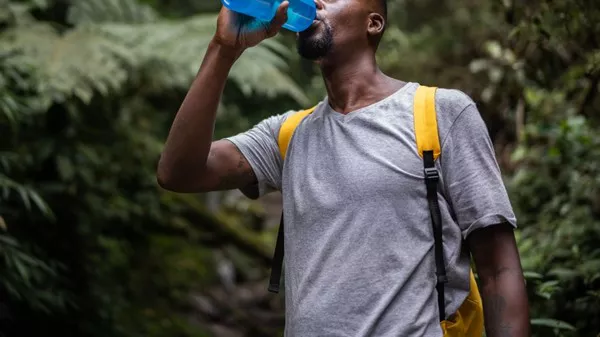The news today reported another tragic incident of a tourist dying while hiking in extreme heat. A man suffered a suspected heart attack while climbing Mount Vesuvius with his family. This unfortunate event is part of a worrying trend, with several accidents involving tourists in the mountains this month. In Greece alone, six people are either dead or missing amidst a heatwave pushing temperatures into the high 40s Celsius. The most high-profile case involved TV doctor Michael Mosley, who was found dead on the Aegean island of Symi after a solo hike without a mobile phone. These incidents underscore the critical importance of taking precautions when hiking in hot weather, especially in rough or unfamiliar terrain.
Lessons from the High Atlas Mountains
Living in the High Atlas Mountains of Morocco, I regularly hike in all weather conditions. In summer, temperatures often reach the high 30s and sometimes the 40s, with the sun’s intensity amplified by the altitude.
My first experience with extreme heat came from participating in the Marathon des Sables, often called the toughest race on earth. This event involves running six marathons in six days across the desert, carrying all your food and equipment. The race starts at 9:30 AM when the sun is already high, and includes a double marathon of 52 miles across sand dunes. Temperatures often hit 50°C.
The hard lessons I learned during this grueling race continue to guide my approach to hot-weather hiking.
Health Risks in Extreme Heat
If you have any underlying health conditions that affect your circulation, hiking in intense heat is not advisable. Even for healthy individuals, the risks are significant.
Heatstroke is a major danger. This condition occurs when the body can’t regulate its temperature, leading to a rapid rise that can cause organ failure and cardiovascular collapse. It can develop quickly, within 10–15 minutes.
Dehydration is another serious risk, potentially leading to kidney failure. This condition arises when the body loses more fluid than it takes in, compromising its ability to function. This risk is particularly acute in the mountains, where medical help may not be readily available.
Heat is often more intense at higher altitudes due to the thinner atmosphere filtering less UV radiation. For every 1,000 meters of altitude gain, UV radiation levels increase by about 12 percent.
Essential Precautions for Hiking in Heat
Carry Sufficient Water
Always take enough water with you. For a full day’s hike, you need at least three liters. Even for shorter hikes, carrying less than a liter is unwise. While water is heavy (one liter weighs about one kilogram), it’s essential for survival. Drink regularly, using systems like CamelBak for constant hydration.
Use Electrolytes
Electrolytes and salt tablets help replenish what you lose through sweat. During the Marathon des Sables, I took a salt tablet every half hour. For hikes over four hours, I always carry electrolyte tablets.
Cover Up
People from hot, arid climates don’t wear skimpy clothes. Wear long sleeves and trousers to reduce moisture loss and prevent sunburn, which can lead to sunstroke. Bring warm clothes for when you stop, as your elevated body temperature can lead to rapid chilling. Technical hiking clothes made from wicking materials, whether synthetic or Merino wool, are ideal.
Protect Your Head
A cap and neck cover are essential. Wetting a scarf or light towel and placing it over your cap can help keep you cool.
Carry Safety Equipment
Always have a fully charged mobile phone and let someone know your plans and expected return time. Consider a satellite tracker for solo hikes. A first aid kit with rehydration salts is a must. Maps and compasses are invaluable, especially if your phone loses signal or battery.
Act Quickly if You Feel Unwell
If you start feeling dizzy, queasy, or disoriented, stop immediately. Find shade, eat something sweet, drink small sips of water, and take extra electrolytes. Cool your head and neck with wet cloths. If symptoms persist after 10 minutes, call for help.
Enjoying the Outdoors Safely
While I always advocate for enjoying the outdoors, preparation and equipment are crucial for safety. If you have any doubts about hiking in extreme heat, consider alternative activities. The consequences of not taking these precautions can be devastating, as recent tragic cases have shown.

